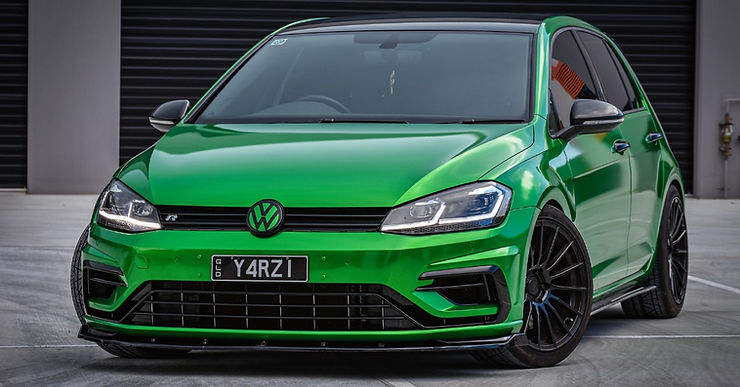Installing a vinyl wrap is a great way to temporarily customize the look of your vehicle, but have you considered what you’re doing to protect your investment? Vinyl wraps can last up to five years, but without proper care and maintenance, they can start to show signs of wear and tear much sooner.

UV exposure, acid rain, bird droppings, bug splatters, and road grime can all age your vinyl wrap. Additionally, excessive exposure to rain or water (including simple car washes) can penetrate the vinyl film’s top layer and cause damage to the adhesive, which can result in bubbling, peeling, and other forms of degradation.
“Washing a ceramic coated car has never been easier! The Two-Bucket Method is fast and simple, allowing you to keep your ride looking like new with minimal effort.”
How to keep vinyl wrap looking new?
To ensure that your vinyl wrap lasts as long as possible, it is important to take steps to protect it. Here are some tips to help you keep your vinyl wrap looking new:
- Use a high-quality wrap protection product. They can help to repel contaminants, prevent UV damage, and keep the wrap looking new. Use products recommended by our shop. Our experts have carefully selected a range of products specifically designed for use on vinyl wraps; this will ensure that your new investment stays protected for as long as possible.
- Regularly wash and dry your vehicle. Regular washing is essential to keep your vinyl wrap looking new, but it’s important to avoid using high-pressure washers, abrasive brushes, or harsh detergents. Instead, use a gentle soap and a soft, non-abrasive sponge. Make sure you rinse your vehicle thoroughly and dry it completely to prevent water spots from forming.
- Avoid exposing your vinyl wrap to the elements. Try to park your vehicle in a garage or under a carport whenever possible. If that’s not possible, use a high-quality car cover to protect your vehicle from the sun, rain, and other weather elements.
- Be cautious when washing your vehicle. Make sure you avoid high-pressure washers and abrasive brushes. This can cause damage to the vinyl wrap and the adhesive, and can lead to peeling, bubbling, and other forms of degradation.
- Make sure you get your car wrap ceramic coated. If your wrap shop didn’t offer it is never too late to ask us for a quote.
The Good old “Two Bucket Method”
The two bucket method is the choice of professional detailers and car enthusiasts around the globe. This washing method involves using two buckets – one for soapy water and one for rinsing. The theory behind this method is to prevent any dirt and debris from scratching the vinyl wrap surface.
By using two separate buckets, you can reduce the risk of contamination. Simply wash your vehicle with the soapy water, rinse the wash mitt in the second bucket, and then continue with the next section of the vehicle. This process helps to ensure that you’re always washing your vehicle with clean soapy water, reducing the risk of scratching the wrap.
Avoid Pressure Washers and Automatic Car Washes
While a pressure washer may seem like a convenient way to clean your vehicle, it can be damaging to your vinyl wrap. The high pressure can cause small tears in the vinyl, and over time this can lead to more significant damage. Similarly, automatic car washes are also not recommended as the brushes and high-pressure water can also cause damage to your wrap.
If you’re looking to clean your vinyl wrap, the two bucket method is the best option. This method is gentle and will help to keep your wrap looking its best.
In conclusion, protecting your vinyl wrap is essential if you want it to last as long as possible. By using products recommended by our shop, using the two bucket method to wash your vehicle, and avoiding pressure washers and automatic car washes, you can ensure that your wrap stays in excellent condition for years to come.
Don’t forget, a vinyl wrap is not different from a paint job, it needs to be sealed and protected. Investing in proper care and maintenance will pay off in the long run.
